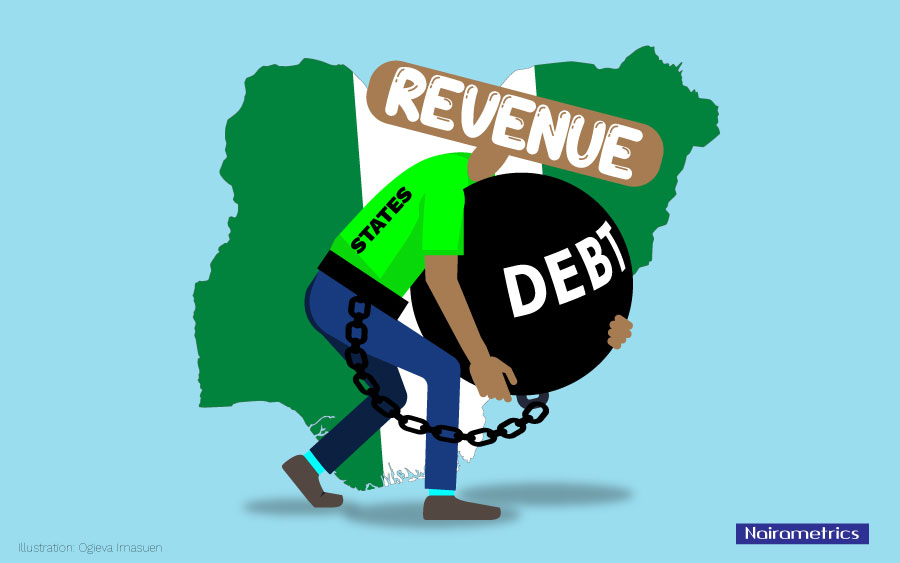The National Bureau of Statistics has said that the country’s foreign and domestic debts stood at $11.41bn (N3.49tn) and N14.02tn as of December 2016.
The bureau stated this in its states and federal debt stock data, which was released on Wednesday in Abuja.
A breakdown of the country’s foreign debt, according to the report, showed that $7.99bn was owed multilateral agencies; $198.25m for bilateral; while the balance of $3.22bn was sourced from the China Exim Bank.
The report stated that while the Federal Government alone accounted for 68.72 per cent of the country’s total foreign debt, all the 36 states and the Federal Capital Territory accounted for the remaining 31.28 per cent.
Similarly, the report stated that the total Federal Government accounted for 78.89 per cent of Nigeria’s total domestic debt, while the 36 states and the FCT were responsible for balance of 21.11 per cent.
“Nigerian states and federal debt stock data as of 31st of December, 2016 reflected that the country’s foreign and domestic debts stood at $11.41bn and N14.02tn, respectively in 2016,” the report read in part.
ALSO SEE: CBN intensifies Forex supply, creates investor-exporter window
A breakdown of the Federal Government’s domestic debt stock by instruments showed that N7.56tn or 68.41 per cent of the debt are in Federal Government bonds; N3.28tn or 29.64 per cent are in treasury bills; and N215.99bn or 1.95 per cent are in treasury bonds.
The report added that Lagos State had the highest foreign debt profile among the 36 states and the FCT, accounting for 38.70 per cent; while Kaduna (6.25 per cent), Edo (5.15 per cent), Cross River (3.22 per cent) and Ogun (2.90 per cent), followed.
Similarly, Lagos State has the highest domestic debt profile among the 36 states and the FCT, accounting for 10.54 per cent, while Delta (8.15 per cent), Akwa Ibom (5.25 per cent), FCT (5.16 per cent) and Osun (4.97 per cent) followed in that order.
If the federal and state governments continue to rely heavily on debt instruments for the financing the country’s infrastructural needs, then, Nigeria’s total debt burden will be hitting the N19tn mark by the end of this year based on figures obtained from the Ministry of Budget and National Planning.
The frequency of borrowings by the federal and state governments has become a source of worry to many analysts who cautioned that the country may be heading for another debt trap if restraint is not exercised.

 Business1 week ago
Business1 week ago
 Football1 week ago
Football1 week ago
 Entertainment6 days ago
Entertainment6 days ago
 Latest1 week ago
Latest1 week ago
 Entertainment3 days ago
Entertainment3 days ago
 Business1 week ago
Business1 week ago
 Latest1 week ago
Latest1 week ago
 Comments and Issues6 days ago
Comments and Issues6 days ago












